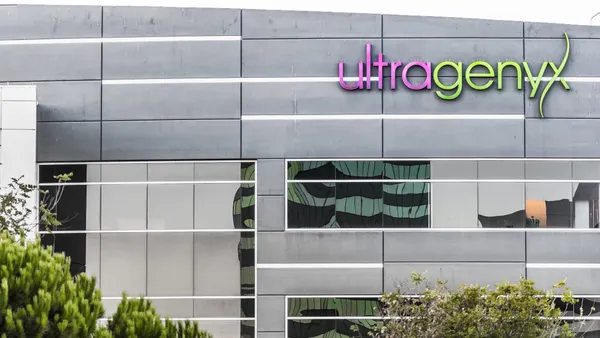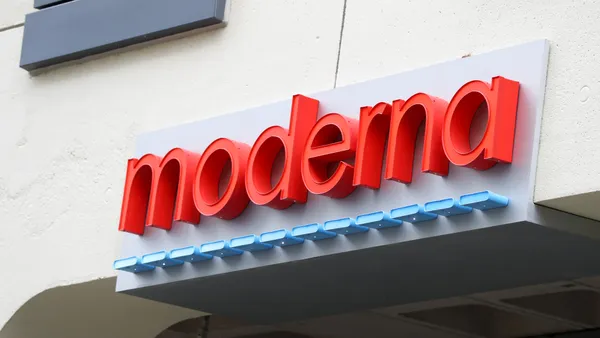Dive Brief:
- Actio Biosciences, a San Diego-based biotechnology startup, announced Wednesday it raised a $66 million Series B financing to support drug research it’s initially aiming at rare genetic diseases, but sees having broader potential, too.
- Actio’s most advanced program is in early-stage testing for the degenerative nerve disorder Charcot-Marie-Tooth disease, but may also be useful in treating overactive bladder, the company said. A second program focused on a genetic form of epilepsy is expected to enter the clinic by the end of the year.
- The startup’s Series B round was co-led by new investor Regeneron Ventures and existing backer Deerfield Management. Canaan, Droia Ventures and Euclidean Capital also participated.
Dive Insight:
Actio emerged from stealth in late 2023 with $55 million in Series A funding and, since then, has brought two small molecule drugs either into or near clinical testing.
One of the medicines it’s developing, ABS-1230, is for epilepsies caused by mutations in a gene called KCNT1. These KCNT1-related epilepsies can strike early and come with severe health complications, such as an impact on brain function or even death. They’re also the target of programs Praxis Precision Medicines, Servier and Atalanta Therapeutics, among others, are pursuing through different drugmaking methods.
David Goldstein, Actio’s CEO and formerly co-founder of Praxis, claimed that small molecules still hold the most promise for targeting epilepsies related to KCNT1, mutations which cause the overactivation of a kind of ion channel expressed in the brain. Some researchers turned to biologics, believing that they may have a better chance dealing with the disease’s myriad mutations, he said. However, Actio believes its drug ABS-1230, which blocks this malfunctioning ion channel, should inhibit all repeatedly observed, disease-causing mutations, making it useful to many patients with the condition.
"This kind of inclusive precision medicine is a key priority for the company," Goldstein said.
Actio’s other drug, ABS-0871, blocks a different ion channel protein called TRPV4 and is currently in a Phase 1 trial with healthy volunteers. By the end of the year, though, Actio intends to start a Phase 1b study in people with the Type 2C form of Charcot-Marie-Tooth, which is characterized by severe muscle weakness and respiratory complications. ABS-0871 is hoping it will show promise in overactive bladder, too, as part of the company’s strategy to use insights from its rare disease research in more common disorders.
Actio began raising its Series B round at the beginning of the year, and was able to complete it despite an accelerating, sector-wide pullback that’s making it harder for companies to close funding rounds. Goldstein attributed its success to picking programs that have “very high biological plausibility.”
“I’m sure that the climate will return back to funding those ideas that might be huge payoffs later, but it's just a little bit hard to predict,” Goldstein said. “You really need to have programs that have a pretty predictable path.”















